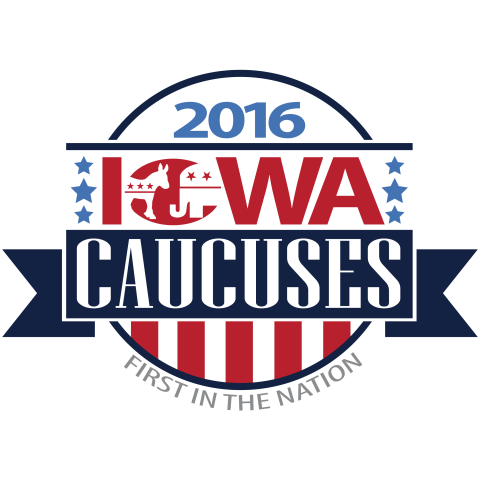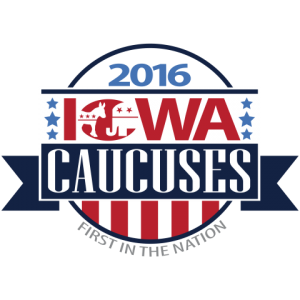Overseas Focus: What Was the Iowa Caucus and Why Does It Matter?
Georgian politics (politics anywhere, to be honest) certainly have a flair for the dramatic, but the United States is unique in the sense that our dramatic election cycle lasts for well over a year. The general election in November is governed by an extremely complicated set of laws surrounding what is called The Electoral College (perhaps a subject of a later article), but right now the two major parties are trying to narrow down their White House hopefuls to just one person. Georgians interested in who the next American president is can honestly wait until final campaigning starts in July, but anyone interested in good drama, better than the best Brazilian soap opera, should pay attention to these primary elections. Almost every week from now until party conventions in July, local state chapters of the Republican and Democratic parties will use a variety of methods to determine who they wish to support as their party’s final candidate (aka, delegate allocations). Traditionally, the first state to allocate delegates is Iowa, hence the media hubbub.
Primary elections, because they are organized at the state level, should be especially interesting for political junkies because they use a variety of voting methods. Partly because Iowa is a rural state, partly because of tradition, and partly because it is just plain fun, the state uses caucuses for their primary election. At a caucus, everyone shows up at a community meeting area such as an auditorium or sometimes their school’s basketball court. They hear stump speeches from representatives of each candidate and then quite literally go stand with the group they wish to support. This is when the fun/chaos begins. After the first round of voting, the floor is opened again for people to change their minds. Additionally, if a candidate does not meet a given threshold of votes in the first round, they are not included in the second. That candidate’s supporters can either go home dejected, or caucus with another candidate in the next round. This is where strategy becomes key, candidates must have persuasive operatives on the ground who engage with supporters of losing candidates and pull them over to their side.
So what happened Monday in Iowa? Ted Cruz, the strict constitutionalist and devout evangelical Christian, won the day, despite higher poll numbers for the brash billionaire, Donald Trump. With a caucus, organization is everything. Candidates can have soaring popularity numbers, but in a complicated and highly personal process like a caucus, they need campaign staff across the state to ensure people show up to the physical location and understand the process. This is perhaps why establishment candidates tend to do better in this primary, because they understand the system well and have spent time amassing the infrastructure to win. On the Democrat’s side the night was even more interesting. Presumptive favorite Hilary Clinton and surprise hit Bernie Sanders essentially tied. The result is important, because it highlights the importance of organizing in every single community, and because it showed that an establishment candidate with experience and lots of money can potentially be beat by an opponent with a passionate and well organized campaign staff and volunteers. A battleground like Iowa is not without casualties as well. Several candidates dropped out after only scoring single-digit percentages of the votes, and we are likely to see more drop out, especially from the over-populated Republican race in the coming weeks.
America woke Tuesday morning with a smaller field of candidates and a good sense of how the remaining ones fare in real political battles. There is, however, a long road ahead until November. We must think of Iowa as more of a single waypoint in a long and complicated process. Rather than applying prophetic predictions on who will win in November, I suggest those interested use Monday’s caucus as a point of comparison on how candidates will re-group and reorganize their efforts. Up next week is New Hampshire. So anyone in Georgia wishing for more ready-made TV political drama should mark their calendars and have the popcorn ready. To close, let’s try and answer the question on everyone’s minds (and yes, even my fellow countrymen are often left confused by this whole process). What significance then does the Iowa caucus have in American politics? To answer frankly, it matters because American pundits and media say it does. Its importance is one of almost purely human construction. Monday’s votes give little, if any, hints about what America will look like come January 2017 when a new president is sworn in. To my Georgian audience I will say this: I see little difference in how a president Cruz, Sanders, Clinton, or Trump would interact with Georgia – mostly because these candidates think more of Iowa than Georgia when they hear “Caucasus.” Aid money will still flow and Georgia will still partner with the US military. The tangible differences in these candidates lie with their views towards domestic law and the distribution of public goods to American citizens. Anyone in Tbilisi with real concerns over one candidate or another should see the process as more entertainment than anything until the final election in November.
Charles Johnson












